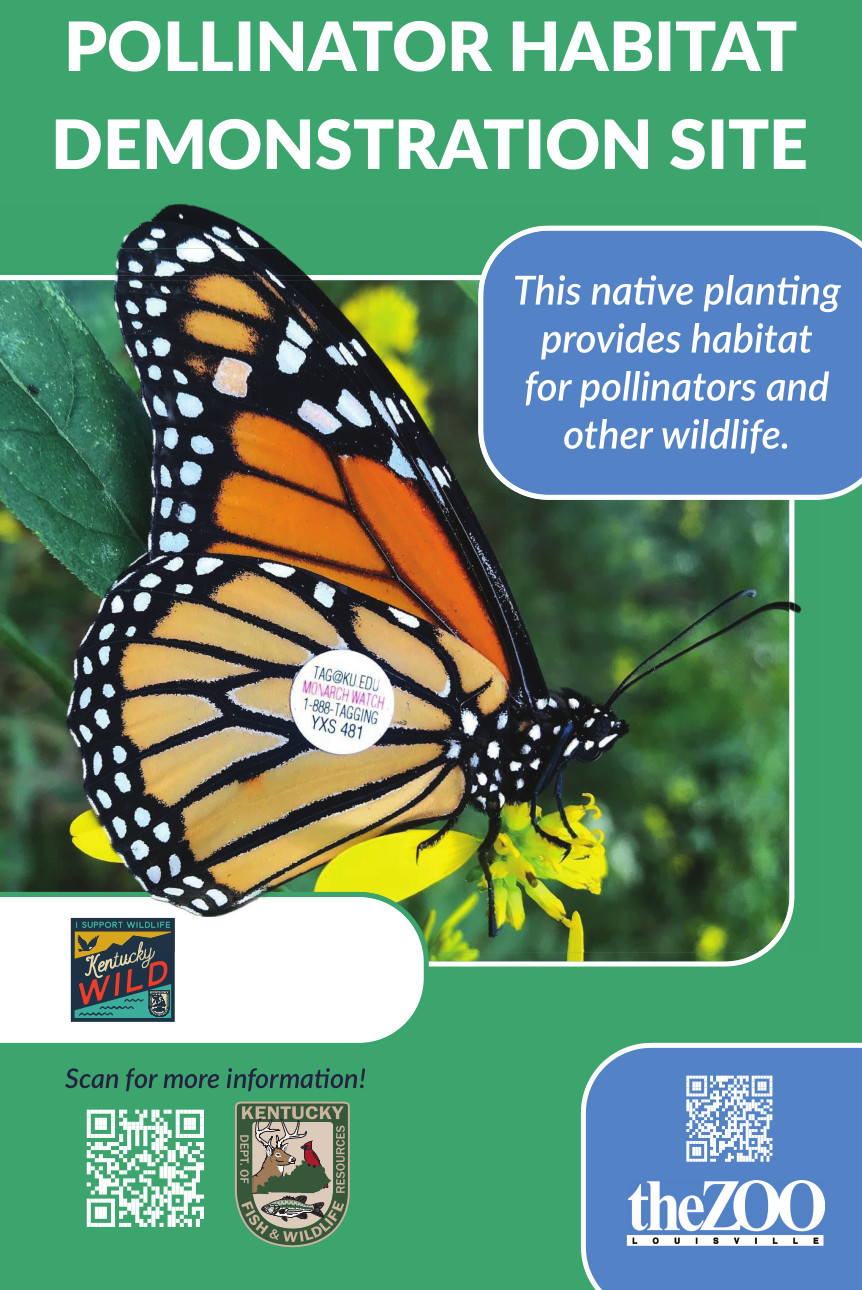
Pollinator in Every County
Monarch butterflies (Danaus plexippus) require diverse nectar resources to sustain their remarkable migration to the high elevation fir forests of Mexico each fall. On their return trip, spring-blooming wildflowers, blooming trees, or shrubs fuel their journey.
Monarch butterflies also require milkweed plants (Asclepias species), the sole food source of monarch caterpillars. This pollinator plot will provide for the needs of both adult and larval monarch butterflies, allowing it to meet the qualifications of a Monarch Waystation.
Kentucky Wild funds helped purchase this native wildflower seed mix for partners to plant in every county in Kentucky. This project was done in partnership with The Louisville Zoo, who provided funding for educational signage.
Monarch butterfly populations have experienced significant declines, and the species is now facing the possibility of listing under the Endangered Species Act. To address this, the Kentucky Department of Fish and Wildlife Resources, alongside organizations and individuals across the state, are working to plant milkweed and nectar plants to support the butterfly. You can help by planting for monarchs in your own backyard!
The following list shows the seeds included in this planting, all of which are great options for feeding monarchs and our other important pollinators. You can get other ideas for your home garden here.
Optional table caption.
| Wild Bergamot |
Monarda fistulosa |
| Black-eyed Susan |
Rudbeckia hirta |
| Butterfly Milkweed |
Asclepias tuberosa |
| Common Milkweed |
Asclepias syriaca |
| False Sunflower |
Heliopsis helianthoides |
| Grey-headed Coneflower |
Ratibida pinnata |
| Illinois Bundleflower |
Desmanthus illinoensis |
| Lance-leaved Coreopsis |
Coreopsis lanceolata |
| Lemon Beebalm |
Monarda citriodora |
| Purple Coneflower |
Echinacea purpurea |
| Foxglove Beardtongue |
Penstemon digitalis |
| White Wingstem |
Verbesina virginica |
The Kentucky Native Plant Society Maintains lists of native plant and seed supplies in Kentucky. While these are not exhaustive lists, these may provide ideas of where to purchase native nectar plants and milkweeds:
- www.knps.org/native-plant-suppliers-service-providers
- www.knps.org/native-plant-suppliers-service-providers
Monarch Larva Monitoring Workshops
The Monarch Larva Monitoring Project (MLMP) is a milkweed monitoring program for anyone interested in helping collect information about monarch butterflies. At an in-person workshop or online, participants learn how to identify monarch butterfly eggs and caterpillar stages, and how to report your findings to the national database tracking monarch distribution and abundance.
Date for the next workshop is spring 2023. You can learn more about MLMP and access online trainings here!
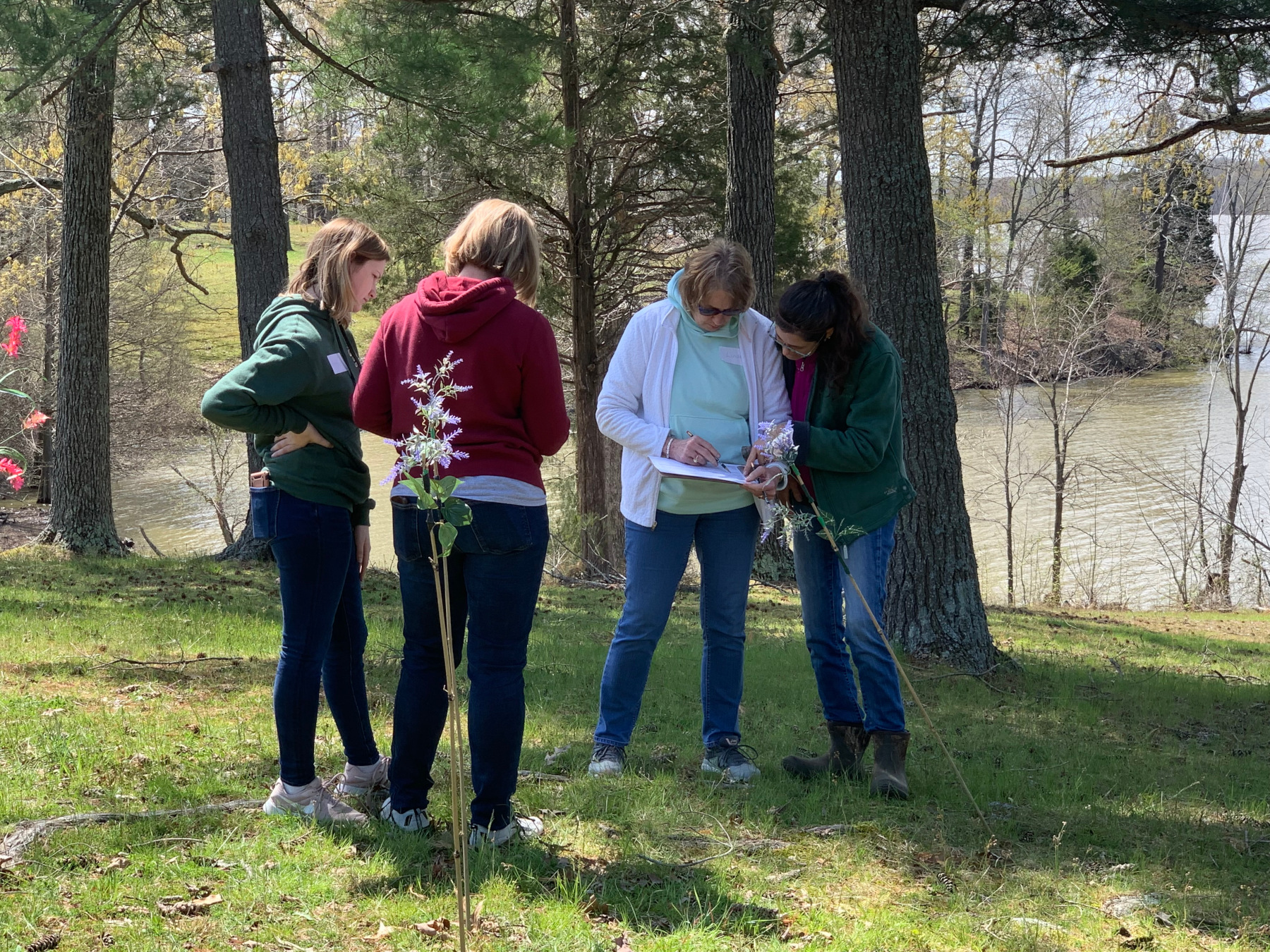
Kentucky Wild has sponsored two MLMP workshops in Benton and Grayson, Kentucky. Our next workshop is planned for central Kentucky in spring 2023. Be sure to check back with this page to sign up!
KY Wild Member Events
Members help our team with many pollinator projects, including habitat enhancement, disease monitoring, and monarch tagging.
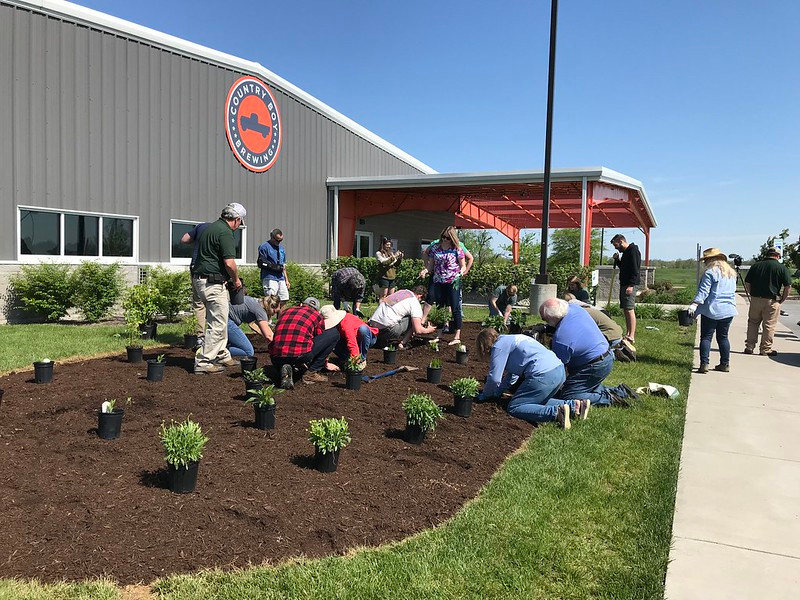
Kentucky Wild sponsor Country Boy Brewing installs a pollinator garden at their Georgetown taproom, with the helping hands of several Kentucky Wild members.
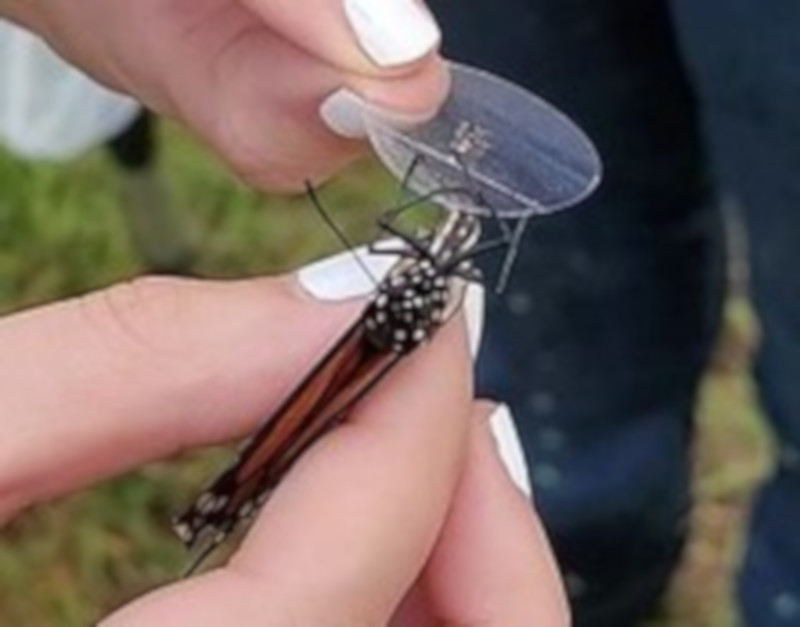
Ophryocystis elektroscirrha (OE) is a protozoan parasite that can cause deformities and death in monarchs and other butterflies. We participate in OE sampling and share information with Project Monarch Health. Learn how you can participate HERE. https://www.monarchparasites.org/monitoring
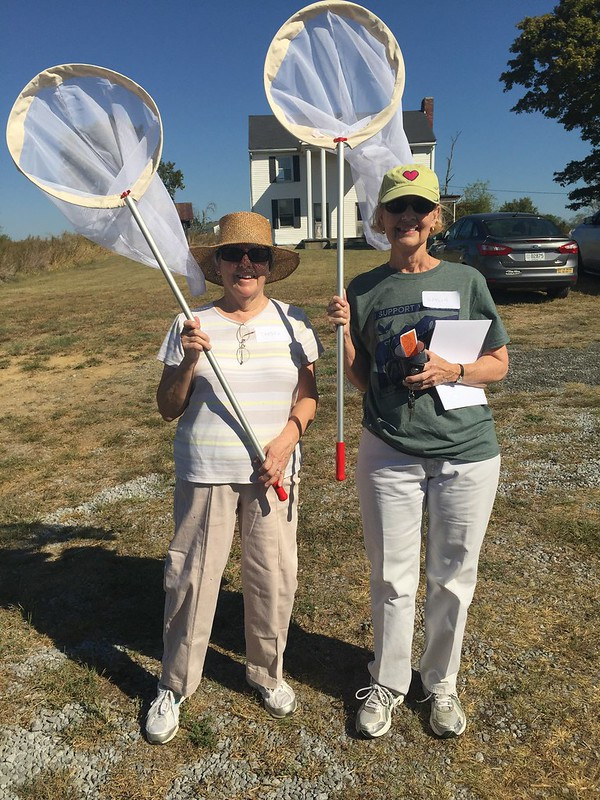
Fall is migration time for monarch butterflies. Our members help catch, tag, and release migrating monarchs at Perryville Battlefield State Historic Site. Kentucky Wild Members, check your email for upcoming events!
Tagging Information
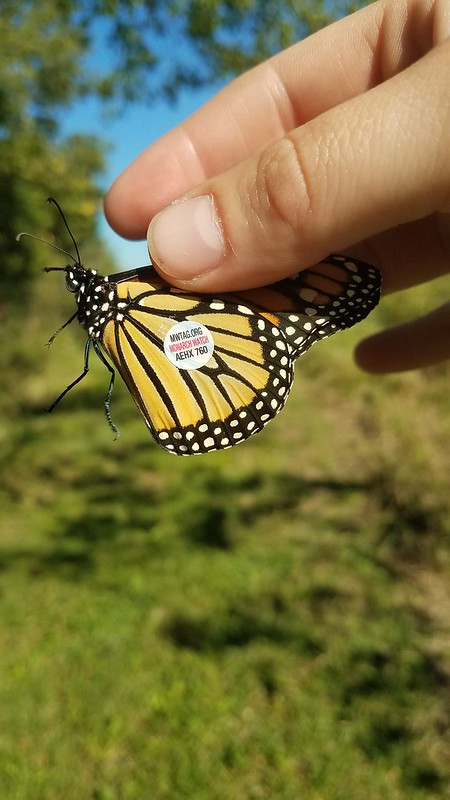
With the help of volunteers, about 200 monarchs are tagged each fall as part of the Kentucky Fish and Wildlife tagging effort. Tag recovery helps scientists lean more about the timing and migration paths of monarch butterflies in the eastern United States. Learn more about the international monarch butterfly tagging program here. https://monarchwatch.org/!
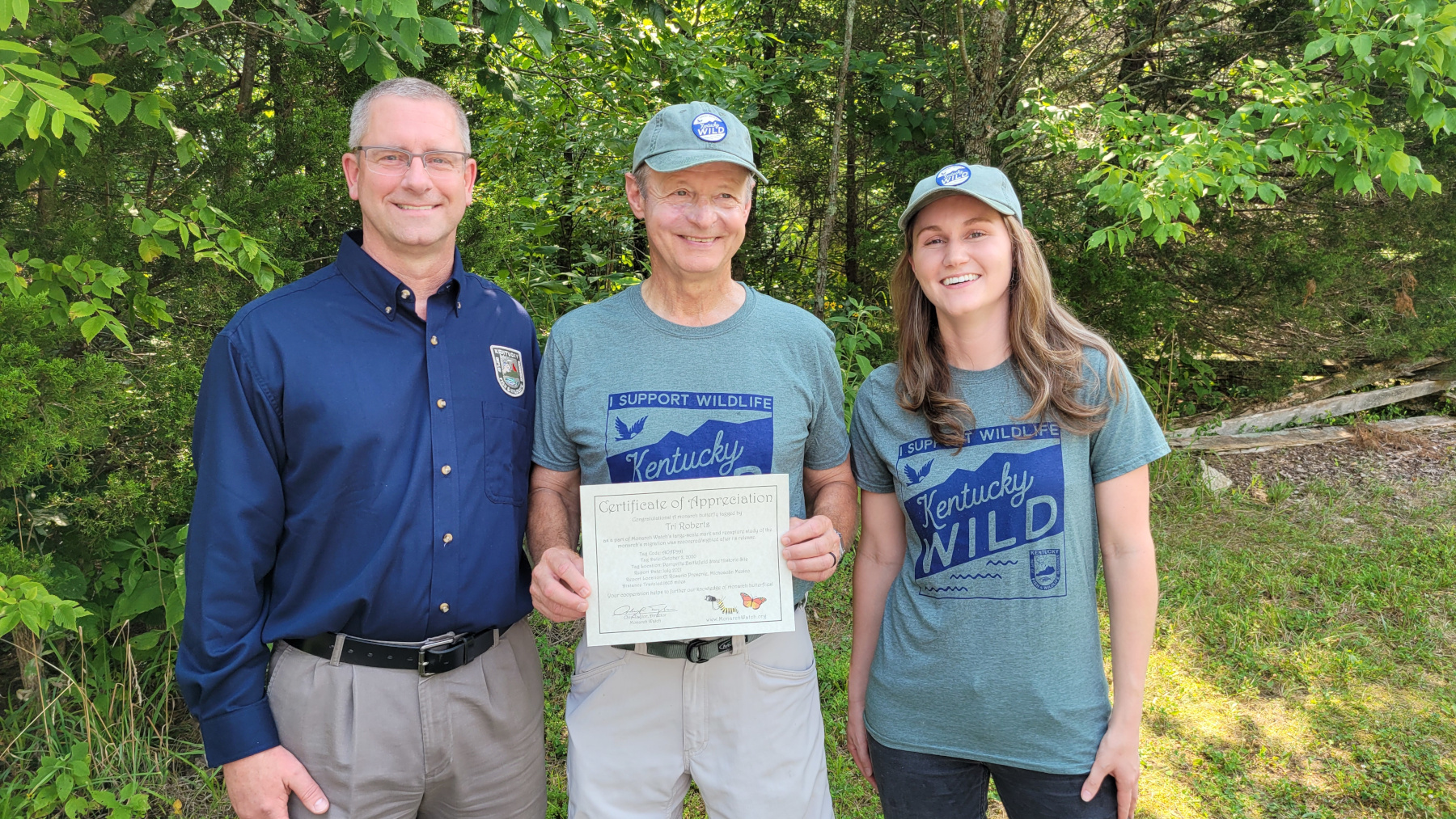
Kentucky Wild member Tri Roberts tagged a monarch butterfly that was later recovered in (refuge name), Mexico. What a journey!
Habitat Enhancement Projects
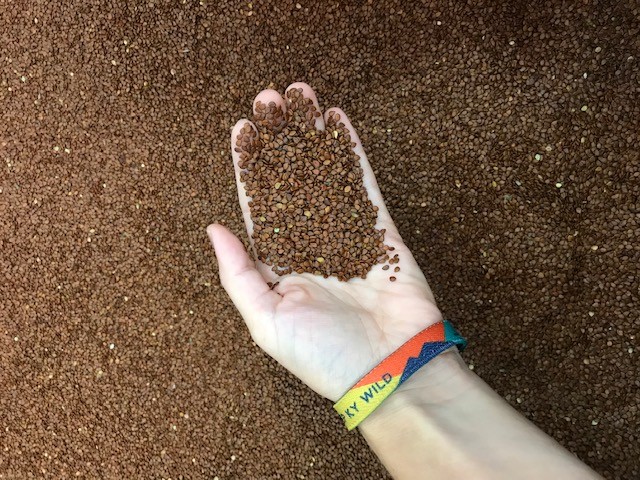
Special native seed blends help establish high quality pollinator habitat. These blends produce plants that bloom at different times of year, ensuring a steady supply of nectar for foraging bees, wasps, and butterflies.
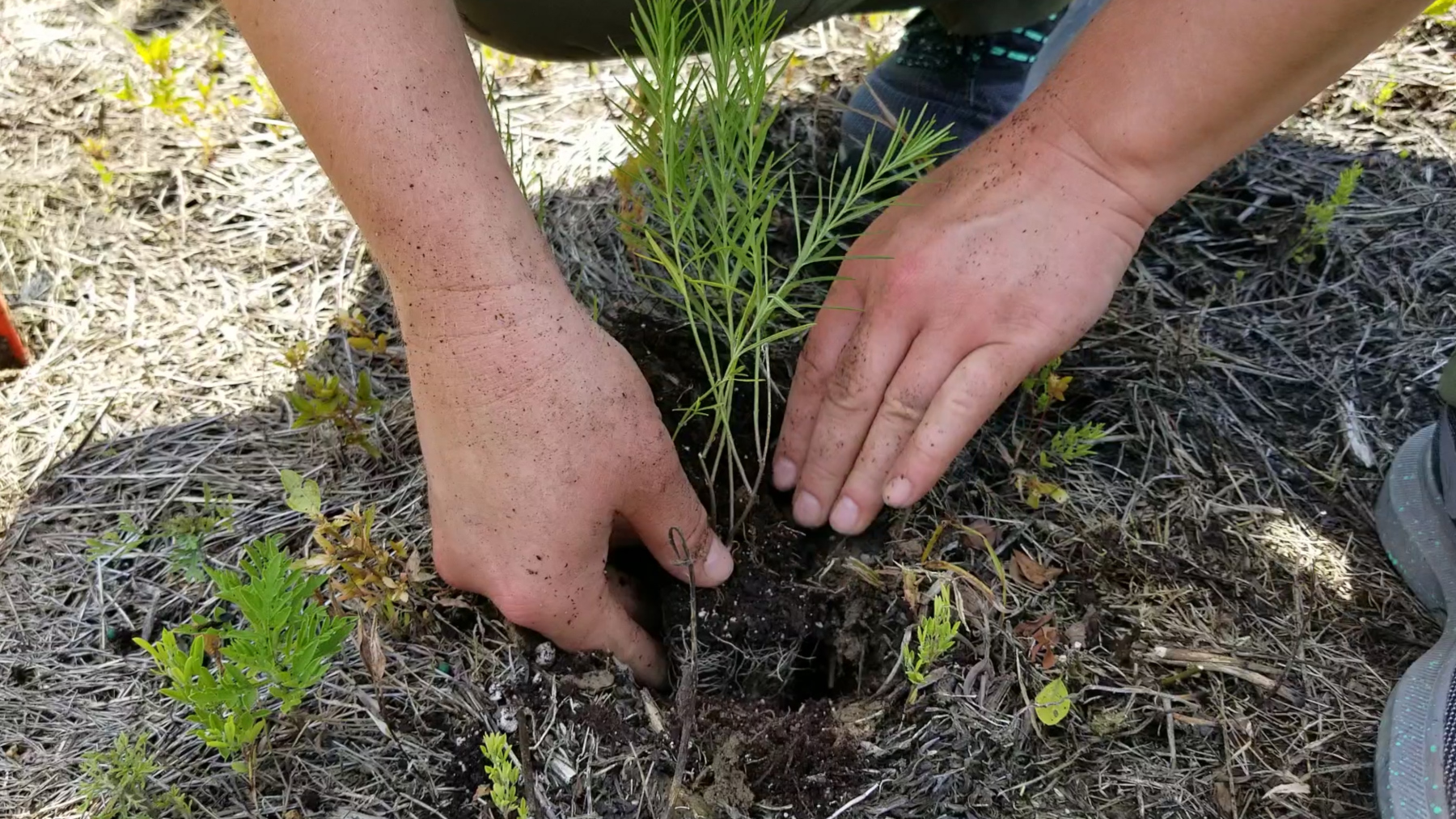
Milkweed is the only plant that monarch caterpillars consume. Enhancing or establishing habitat with native common, swamp, butterfly and whorled milkweed is one goal of Kentucky Monarch Conservation Plan. https://fw.ky.gov/Wildlife/Documents/ky_monarch_plan.pdf
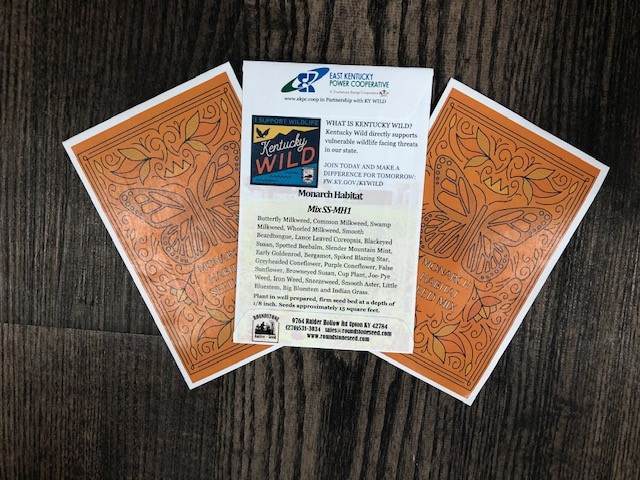
There’s no spot too small for good habitat! East Kentucky Power Cooperative purchased these pollinator-friendly seed packets to share across the Commonwealth.
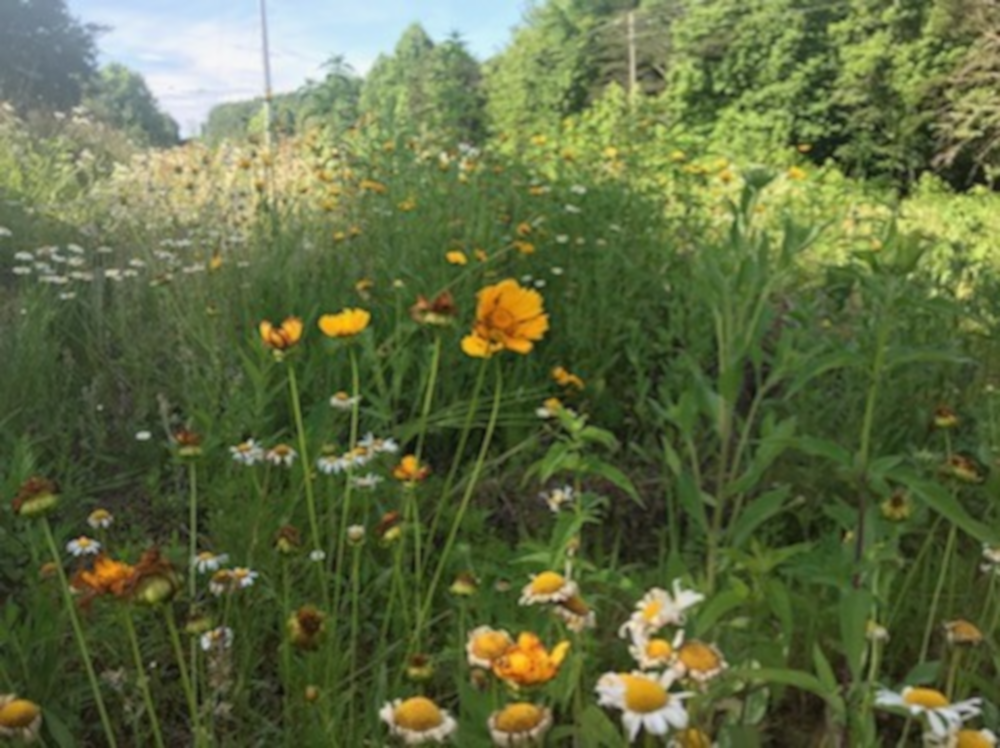
Image: Grayson WMA June 16 2020 and HQ flora close up
Sponsors East Kentucky Power Cooperative and NiSource/Columbia Gas purchased native seed blends to establish 48 acres of pollinator habitat at Grayson WMA, Lake Cumberland WMA and KDFWR Headquarters in Frankfort.